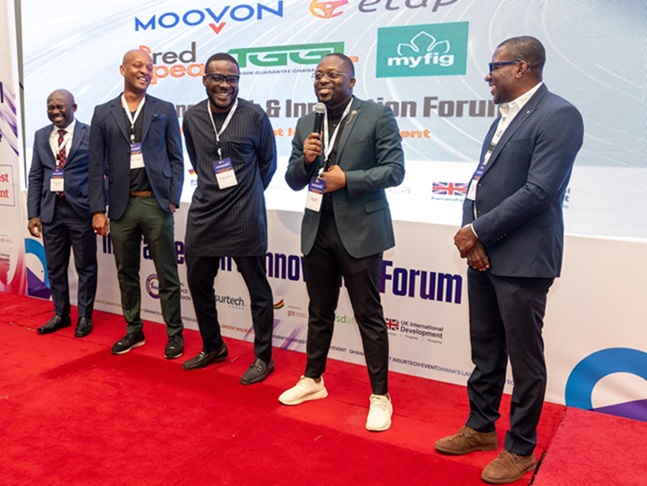NIC pioneers insurance innovation, supports insurtech growth

The National Insurance Commission (NIC) of Ghana has taken a significant step toward transforming the country’s insurance landscape by granting sandbox innovation licenses to five insurance technology (insurtech) firms.
These licenses allow the firms to pilot innovative insurance products for a one-year period, after which the NIC will evaluate their performance and decide on issuing full licenses.
The five firms awarded the licenses are at the forefront of leveraging technology to address some of the key challenges in the insurance sector.
Among the licensed firms are Figtech, Moovon Insure, Holland Insurance in partnership with Nigeria-based ETAP, Trade Guarantee Limited (TGL), and Red Pear.
Each of these firms offers unique solutions aimed at improving customer access to insurance, enhancing policyholder experience, and making insurance more affordable and flexible.
Low Insurance Penetration and the Role of Innovation
Ghana’s insurance penetration remains low, with less than 2% of the population currently under any form of insurance. The NIC sees innovation as a critical tool in addressing this gap. Speaking at the event, the Commissioner of Insurance, Mr. Michael Kofi Andoh, highlighted the importance of innovation in expanding insurance access. He noted that partnerships with fintechs and the development of modern solutions would help increase insurance coverage and protect more people.
“As a forward-looking regulator, the NIC is committed to enabling market players to leverage innovation and technology for market development. We anticipate that these efforts will help bridge the protection gap, safeguard policyholders’ interests, and expand access to insurance across the country,” Andoh said.
FSD Africa’s BimaLab and Regional Support
The regulatory sandbox initiative was supported by FSD Africa’s BimaLab programme, which aims to foster innovation in the insurance sector across Africa. BimaLab operates in 16 African countries, including Ghana, and works with 15 regulatory bodies to build capacity and accelerate the growth of insurtechs. Since its inception, the programme has helped 100 insurtech firms launch 75 new projects, expanding insurance coverage by 5 million people and raising $35 million in capital.
One notable success story from the BimaLab programme is Ibisa, a climate-focused insurtech firm based in Ghana. Earlier this year, Ibisa raised $3 million to scale its parametric insurance solutions, which provide coverage for weather-related risks—a critical issue given the rising global cost of extreme weather events, particularly in agriculture. Ibisa’s parametric insurance offers an efficient way to protect farmers and businesses from the financial losses caused by climate change.
Driving Innovation in Ghana’s Insurance Industry
Ghana’s insurance sector is poised for transformation, thanks to these new technological advancements. The five insurtechs awarded sandbox licenses are expected to play a key role in modernizing the industry.
Figtech provides an aggregator platform that streamlines the customer journey from policy purchase to claim settlement, enabling consumers to compare products and make direct purchases through mobile money.

Moovon Insure operates an online platform connected to multiple insurers, offering flexible pay-as-you-go premiums.
Holland Insurance and ETAP leverage mobile telematics to offer driving-based insurance products with flexible premium payments based on driving behavior.
Trade Guarantee Limited (TGL) offers “Sorpi Sorpi,” a telematics-based third-party motor add-on service.
Red Pear provides an aggregator platform that allows clients to choose insurance products based on pricing and user experience, offering greater flexibility and transparency.
A Growing Insurance Sector
Ghana’s insurance sector consists of 26 non-life companies, 18 life insurance companies, three reinsurance companies, 113 insurance brokers, and about 5,000 agents nationwide. In 2022, the sector’s total assets reached GH¢17 billion, with life insurance contributing GH¢8.5 billion, non-life insurance adding GH¢6.6 billion, and reinsurance providing GH¢1.4 billion. Intermediaries contributed GH¢0.5 billion.
FSD Africa’s Principal for Innovation and BimaLab Lead, Elias Omondi, lauded Ghana’s regulatory approach, noting that the NIC had positioned the country as a leader in fostering innovation in insurance across the continent. He emphasized that innovations such as insurtechs are vital for expanding insurance coverage to underserved communities, lowering service costs, and improving resilience for businesses and individuals alike.




